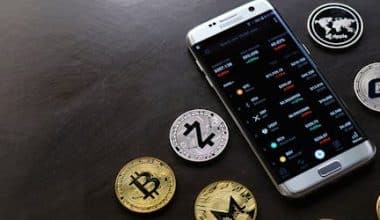Have you ever walked into a store with a specific item in mind, only to leave with a completely different (and often more expensive) purchase? Or perhaps you’ve been swayed by a catchy advertisement or a persuasive salesperson. These situations all hinge on the fascinating world of consumer psychology, where understanding the “why” behind customer behavior is the key to making successful deals.
In the intricate dance between customer and business, every decision is a gamble. Whether it’s choosing between products on a shelf or placing bets in a casino, the psychology behind these decisions is fascinatingly similar. Understanding what drives customers to make their choices is key to success, both in the world of online casinos and traditional businesses.
For example, online casino bonuses have a magnetic pull on players, enticing them to try their luck with promises of free spins, bonus cash, and other perks. These bonuses tap into the psychological principle of reciprocity, where customers feel obligated to return a favor after receiving something of value. By offering attractive bonuses, online casinos create a sense of goodwill and loyalty among players.
This article explores the surprising ways in which customers make choices, highlighting the psychological factors at play. By gaining this knowledge, businesses of all kinds – from brick-and-mortar stores to online casinos – can craft more effective marketing strategies and create experiences that resonate with their target audience.
The Sunk Cost Fallacy: Don’t Throw Good Money After Bad
Imagine you’ve already invested two hours into assembling a complicated piece of furniture, only to realize you’re missing a crucial component. Do you give up or keep pushing through? The sunk cost fallacy describes our tendency to continue investing time, money, or effort into something simply because we’ve already invested a significant amount.
The Anchoring Bias: The Power of First Impressions
The anchoring bias refers to our tendency to rely too heavily on the first piece of information we receive when making a decision. For instance, if a product is initially priced high and then discounted, it appears like a better deal, even if the final price is still above average.
The Framing Effect: How Presentation Shapes Perception
The way information is presented can significantly influence our choices. Consider two airline tickets: one priced at $1,000 with a free meal voucher and another priced at $970 without the voucher. While the difference is minimal, most people will opt for the first option. This is the framing effect in action! Also, online casinos often utilize this by highlighting online casino bonuses and free spins alongside game options as a better deal for the player.
The Power of Scarcity: When “Limited Time” Fuels Desire
Scarcity marketing plays on our fear of missing out (FOMO). Limited-edition products or flash sales create a sense of urgency, making us feel the need to act fast. This tactic is prevalent in online casinos as well, with “limited-time” online casino bonus offers or exclusive rewards programs designed to encourage immediate action. Online casino bonuses often come with terms and conditions, such as wagering requirements and time limits, which players must adhere to unlock the full benefits of the bonus.
Humans are social creatures, and we often rely on others’ behavior to guide our own decisions. This is known as social proof, and it’s why customer reviews, product endorsements, and influencer marketing can be so effective. Seeing others use and endorse a product makes us feel more confident about making the same choice.
Businesses can leverage social proof by showcasing positive customer testimonials, displaying social media engagement metrics, or partnering with relevant influencers. Additionally, highlighting popular products or “bestsellers” plays on our tendency to conform to the majority and encourages us to follow suit.
The Allure of the Uncertain: Why We Take Chances
Humans are naturally wired to seek rewards, and a little bit of uncertainty can actually add to the appeal. This is evident in the popularity of games of chance, like lotteries and scratch-off tickets. While the odds of winning big are statistically low, the potential for a significant reward fuels the excitement. Online casinos offer a wide range of bonuses to attract new players and reward loyal customers, including welcome bonuses, reload bonuses, and loyalty programs.
This desire for a potential windfall can also translate into customer behavior. For example, a product labeled “mystery box” might pique your curiosity and entice you to purchase it, even if the contents are unknown. Understanding this inherent “gamification” of the shopping experience allows businesses to create a sense of excitement and anticipation around their offerings.
Beyond the Transaction: Building Trust and Loyalty
While understanding the psychology of the deal is crucial, it’s equally important to build long-term relationships with your customers. Transparency, ethical practices, and excellent customer service all contribute to trust and loyalty. A customer who feels valued and respected is more likely to return and recommend your business to others.
Here are some actionable takeaways:
- Highlight the value proposition: Clearly communicate the benefits your product or service offers to address customer needs.
- Offer incentives strategically: Leverage scarcity or bonus offers to encourage engagement but ensure transparency and responsible practices.
- Personalize the experience: Tailor your communication and offerings to cater to individual customer preferences.
Understanding the psychology behind customer decision-making is crucial for businesses looking to succeed in today’s competitive landscape. By studying the strategies to attract and retain players, businesses can gain valuable insights into how to engage and satisfy their own customers. Whether it’s offering enticing online casino bonuses, customizing the experience, or building trust, businesses that understand the psychology of the deal are better equipped to win in the game of commerce.





